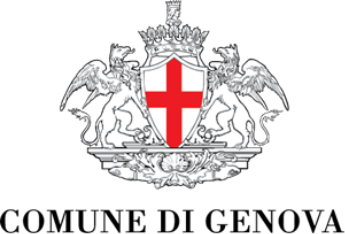The liberation of Genoa occurred following the insurrection which began on the night of April 23 and ended on the evening of April 26, 1945, with the arrival of the first contingents of Allied troops, who entered the city on the morning of April 27.
The only case in Europe, in Genoa, an entire German military contingent, under the command of General Gunther Meinhold, surrendered to the Resistance forces, without any allied war intervention.
General Meinhold had been reached at his headquarters in Savignone by Professor "Stefano" (Carmine Romanzi), who handed him two letters, one from Cardinal Boetto and the other containing the surrender proposal made by the National Liberation Committee (CLN) .
Having accepted the negotiation and delivered his gun to Professor "Stefano", the General was escorted to Genoa, to Villa Migone, where he met the representatives of the C.L.N. and at 7.30 pm on April 25, 1945 he signed the surrender.
The order to deliver their weapons given by the German general found opposition from the departments of the Kriegsmarine, commanded by naval Captain Max Berninghau. The consequent refusal to surrender to the partisans and the death sentence of Meinhold meant that the fighting continued until April 26 when, in the evening, the first advanced forces of the allied troops began to arrive, who entered the city on the morning of the 27th.
On November 4, 1945, following the instructions of the, then, Mayor Vannuccio Faralli, the original copy of the surrender deed of the German troops shown here was transferred to the Museum of Risorgimento, so that it could be kept there.
On August 1, 1947, the city of Genoa was awarded the Gold Medal for Military Valour, with the following motivation:
Love of country, the pain of a people oppressed, proud spirit of rebellion, animated its people in the twenty months of hard struggle whose martyrs are a new shining gem to the auro serto of glory of the "Superb" maritime republic.
The 1963 fallen whose blood was not shed in vain, the 2250 deportees whose martyrdom still burns in the flesh of the survivors, constitute the banner that breathes over the tormented city and that inflamed the partisans of its massive Apennine and the impervious valleys, held by the VI Operations Zone, to continue in the epic deed until the day when its people played their role in the general insurrection.
Once the enemy’s arrogance was broken, the strong German garrison surrendered, saving port, factories and honour.
The courage, sacrifice and determination of her children gave back a bloodstained freedom to their bleeding mother and from her smoking ruins a new life arose, sanctified by the heroism and holocaust of her martyrs.
September 9, 1943 - April 1945




